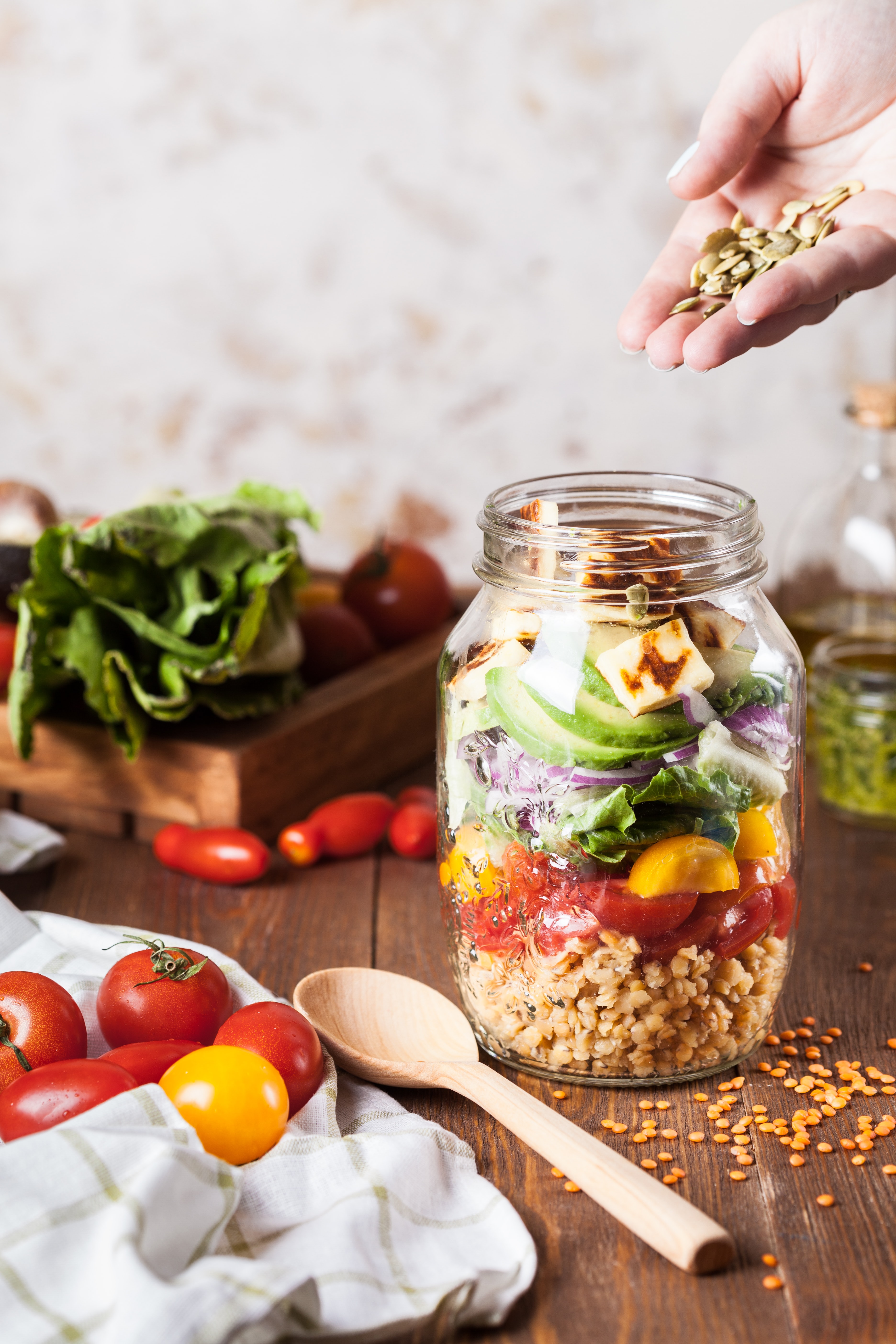Let’s talk Gut Health with Tina McGuire – Accredited Practising Dietician.

So you may have noticed in the past 5 years or so the trend towards gut health, with products like kombucha, kefir and probiotics hitting the supermarket shelves. But what is it and can you change it?

The gut and the gut microbiota:
Our “gut” refers to our gastrointestinal tract, this goes from our mouth to our anus (includes oesophagus, stomach, small intestine and large intestine). The role of our gastrointestinal system is to break down and digest the food we eat, to extract nutrients for use or storage and excrete waste.
The gut microbiota refers to the billions of microorganisms (bacteria, viruses, fungi, and protozoa) that reside in the intestinal tract. Our gut microbiota is unique to each of us and research has shown dietary modification can induce microbial change in less than a week! Lifestyle factors such as smoking, certain medications, antibiotics and chronic stress can also impact our gut microbiota. Typically, we have a balance of ‘good’ and ‘bad’ bacteria.
But why is the gut important?
· It influences our immune function- around 70% of our immune cells reside in the gut.
· It influences our risk of chronic disease such as inflammatory bowel disease, obesity, type 2 diabetes, cardiovascular disease and cancer.
· It has been linked with mental health conditions- unbalanced gut microbiota has been noted in patients with anxiety and depression. It is not yet known which came first- the condition or altered microbiome.
· It produces important molecules that helps maintain the gut barrier.
· It can make vitamins (e.g. Vitamin K, B vitamins and folate), hormones and chemical messengers and many others.
It is important to note there is no single healthy gut microbiota nor any validated tests to tell you whether your gut is healthy. What is healthy for you may look very different to someone else. In general, the goal is diversity: higher levels of diversity are associated with better overall health.
What are some common signs that may indicate an unhappy gut?
· Excessive gas
· Bloating- some amount of bloating is normal, particularly after a large meal or when extra fibre is consumed but for some people excessive bloating may be a symptom of functional gut disorders such as IBS
· Constipation- this includes hard stools, difficulty passing stools, incomplete evacuation or reduced frequency of defecation.
· Diarrhoea- this includes watery/soft/mushy stools, having to defecate with urgency or defecating more often than usual.
· Abdominal pain
· Reflux or heartburn
Where do prebiotics and probiotics fit in?
Prebiotics are non-digestible components of food, they feed and stimulate the growth of ‘good’ bacteria in our gut. The main prebiotic fibres are inulin, fructo-oligosaccharides (FOS) and galacto-oligosaccharides (GOS). These fibres are found in high fibre foods, including but not limited to: Jerusalem artichokes, garlic, onion, asparagus, legumes, nectarines, watermelon, rye, oats and cashew nuts. Cooked and cooled potato and rice offer another type of prebiotic called resistant starch.
Probiotics are live bacteria that confer health benefits when consumed in a viable form and in adequate amounts. They’re usually added to yoghurts/yoghurt drinks or taken in capsule form. When choosing a probiotic, it is important to consider whether there is evidence for your symptoms, what the effective strain/s are, the dose required and duration of administration. Lastly it is important to note, you need to keep taking them on a regular basis to get benefit from them.
What about fermented foods?
Fermented foods are types of probiotics, they include sauerkraut, kimchi, kombucha, miso, tempeh and kefir.
Top tips for a healthy gut:
· Aim for abundance and diversity in plant based foods. All plant based foods contain an array of fibres that feed your gut bugs. But remember, different bugs prefer different fibres, so in order to achieve a diverse gut microbiota, you need a varied plant-based diet. So aim for different coloured fruit and vegetables across the week, add nuts and seeds to your salad, try wholegrains such as quinoa or barley in salads, try swapping your animal based protein for a plant based one (tofu or legumes) or go 50/50 if making Bolognese sauce, aim for ½ plate of vegetables at lunch/dinner and 2 pieces of fruit per day.
· If increasing fibre and probiotics in your diet, do it slowly with adequate fluid otherwise you may feel bloated or have gut discomfort.
· Limit foods high in saturated fats and added sugar.
· Manage your stress through regular exercise, good sleep hygiene and meditation.
· Don’t smoke cigarettes.
If you’d like to learn more about gut health or have gastrointestinal issues, get in touch. You can make an appointment with me, Tina McGuire – Dietician, at www.fundamentalhealth.com.au/tina
Happy tummies 😀
Tina xx



Responses